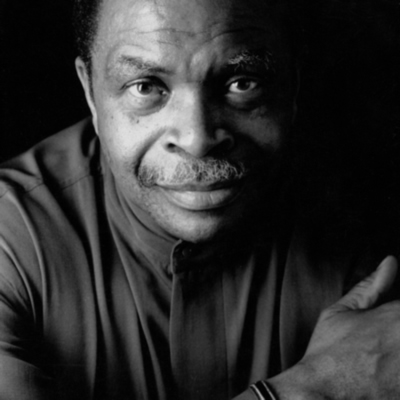
It is with deep condolences that the great musician and Blues singer, Otis Clay has passed at 73.
Born February 11, 1942 in Waxhaw, Miss., Otis Clay grew up in a thoroughly sanctified environment. “Like most traditional black families, Church was a big part of my life not just the religious aspect but the social, it was the center of our community. As kids we imitated what we saw and heard in the church, that was how the singing thing started.”
Gospel would remain Otis’ primary focus after arriving in Chicago during the mid-‘50s, He joined the Golden Jubilaires, then hooked up with Charles Bridges’ Famous Blue Jay Singers in 1960.
“Here we are singing acappella, and we’re singing in elementary schools, high schools, hotels and colleges and things like that,” says Clay. “We were known as variety singers, or we were billed as (performing) ‘Old Negro Spirituals and Plantation Melodies.”
“After the Blue Jays, it was the Holy Wonders. After the Holy Wonders, then it was the Pilgrim Harmonizers. After the Pilgrim Harmonizers was the Gospel Songbirds, which was a very important group that I was in at that time. And from the Gospel Songbirds, I went to the Sensational Nightingales.” Even as he sang spirituals, Clay cut an unissued R&B session for Columbia with producer Carl Davis.
The One-derful Records deal came about after I left Columbia. Cash McCall (Maurice Dollison) who I was in several Gospel groups with, was signed to One-derful! and he introduced me to the label. It was cool because it was a hip independant label, located on South Michigan Avenue in the heart of Record Row.
“All the while I was with the Sensational Nightingales, I had a contract with One-derful!. George Leaner would just say, ‘Hey, whenever you get ready,’ you know. He said, ‘I know it’s difficult for you.’ But it wasn’t as difficult as he thought it was because of my experience with The Blue Jays.” says Otis. “He was like a father to me. whenever I’d come home to Chicago, I’d go by the offices and he and I would sit and talk just like a father. He’d say, ‘Okay, well, when are you coming back home again?’ I’d say, ‘Well, it’s gonna be two or three months from now.’ So he’d say, ‘Are you okay?’ ‘I’m okay.’ ‘Well, take this money anyway.’”
At One-derful!, Otis gained a mentor in labelmate Harold Burrage. “The Sensational Nightingales, we were doing a gospel show at the Regal,” Clay says. “I was coming home one night. I was on the el. And Harold was on the el. So he said, ‘Hey, man, I caught you at the Regal today. You really sounded great!’ He said, ‘I understand you’ve got a contract with One-derful!’ ‘I’m with One-derful! too.’ At that time, he was coming off a tune called ‘Master Key.’ He said, ‘Whenever you get ready, man, I sure would like to work with you!’”

Otis debuted on One-derful! in mid-1965 with the explosive ballad “Flame In Your Heart,” then encored later in the year with “Tired Of Falling In (And Out Of) Love.” 1966 brought more Clay gems on One-derful! with the double-barreled single “I’m Satisfied” b/w “I Testify” and then “It’s Easier Said, Than Done.” Clay nailed his first national R&B hit with the gut-wrenching “That’s How It Is (When You’re In Love)” during the summer of 1967.
Before year’s end, Otis tore into a blistering revival of the storming “Got To Find A Way” as a tribute to his mentor Burrage, who had unexpectedly died of a heart attack in late ‘66. “It was pretty good, but I still like Harold’s version much better than any of the versions I did,” says Otis. “Man, it’s just so funky and natural.” As it turned out, “A Lasting Love,” the flip side, turned out to be a hit for Otis in late ‘67.
After a last release on the label, One-derful! boss George Leaner revealed some surprising news. “He called me in the office one day and said, ‘Look, hey, I’m getting out of the business. But I looked out for you, you’re going to go to Atlantic.’ And of course, Atlantic was so hot at that time, I was excited about that.”
Assigned to Atlantic’s brand-new Cotillion Records, Otis inaugurated the imprint with a scalding remake of the Sir Douglas Quintet’s romping “She’s About A Mover”. It was cut at Rick Hall’s FAME Studios in Muscle Shoals and made a national R&B chart impact in the summer of ’68.
Otis also recorded for Cotillion in Chicago with fellow soul screamer Syl Johnson at the helm; the torrid “Hard Working Woman” was one of the session’s highlights. “I said, ‘Man, this could be another “Who’s Making Love,”‘ says Clay. “So Syl said, ‘Why don’t you take it home and finish it, and then we’ll record it?’” Atlantic Cotillion also sent Otis down to Memphis, where he made his initial sides with producer Willie Mitchell, whose yeoman work at Hi Records didn’t preclude a little moonlighting.
“Willie was really hot at the time,” says Otis. “(WVON deejay) Pervis Spann was pretty much the one that made that happen.” Clay waxed the tortured ballad “Is It Over” at Poppa Willie’s Royal Recording Studios. “Around April of ’71, we were in Memphis recording the last session I did for Atlantic,” says Otis. “Then about November of that year, I was signed to Hi Records.” At Hi, Clay would work closely with Mitchell, who was also Al Green’s producer, and the label’s terrific studio band The HI Rhythm Section, (brothers Teenie, Leroy, and Charles Hodges and drummer Howard Grimes).
“When it was your turn, everything was focused on you,” says Otis. “It wasn’t like, ‘You gotta do this, you got three hours, and then after that so-and-so is coming in,’ and everybody’s watching the clock. When it was time to work, we worked. We ate together, we hung together.” That collaborative spirit enriched Clay’s first two Hi singles in 1972, “Home Is Where The Heart Is” and a splendid cover of Jackie Moore’s “Precious, Precious” and climaxed with the immortal“Trying To Live My Life Without You.”
“I was in Memphis recording,” remembers Otis. “I was at the hotel. By now, it may be around one o’clock, or something like that. By this time, nobody’s in the studio but Willie Mitchell and George Jackson.
“Willie Mitchell said, ‘Otis, I know it’s late, man. Are you awake?’ I said, ‘Yeah, I’m awake, yeah.’ Even when you’re asleep, when somebody that important calls you, you’re awake, you know.
“In my mind, I can see it, because Papa Willie’s in the control room, and George is out in the studio. Well, by now, they’ve been tying it on all day, and on into the night. So George is at the piano. I said, ‘Yeah, let me hear it!’ He said, ‘Hey, George, I got Otis on the horn. Go on and do the tune!’ And George was like, ‘I-I used to smoke five packs…’ And that’s how the intro thing came about. ‘Cause I remember it so vividly, man. It was a phrase that we used because of the condition that he was in at that time!” The surging “Trying To Live My Life”proved Otis’ biggest seller of all in late 1972, propelling him onto Soul Train for a lip-synched appearance.
Though his similarly surging “I Didn’t Know The Meaning Of Pain” slipped through the commercial cracks, Otis scored another hit on Hi in ’73 with the uplifting “If I Could Reach Out (And Help Somebody),” written by Jackson. “To this day, on a gospel concert, people ask for it,” notes Clay. When his deal at Hi expired, Otis headed over to Henry Stone’s Miami-based Kayvette logo, hitting in 1977 with the Jackson copyright “All Because Of Your Love.”

Taking his recording fortunes into his own hands, Otis launched his Echo label during the mid-’70s, releasing singles “Messing With My Mind” in 1976 and his ’80 revival of O.V. Wright’s “A Nickel And A Nail.”
Not all of Otis’ output was issued under his own imprint. There was a pair of splendid live albums cut in Japan, where Otis has commanded an extremely devoted fan base since the ’70s, and two acclaimed Bullseye Blues CDs, I’ll Treat You Right (1992) and This Time Around (1998), the latter a long-awaited studio reunion with Mitchell.
A long time resident of Chicago’s West Side, Otis Clay is actively involved as a board member of People For New Direction, a community-based non-profit creating economic initiatives to address a number of issues on the West Side. People For New Direction consists of West Side businessmen and women, doctors, ministers and others who believe strongly in giving something back to the community where they live and work.
As Chairman of The Board of the non-profit Tobacco Road, Inc. (TRI, Inc.), Otis was heavily involved in the extensive planning, fundraising and development of The Harold Washington Cultural Center at 47th and King Drive which has served as the cornerstone for the revitalization and redevelopment of the historic Bronzeville neighborhood. The Cultural Center, which includes the state-of-the-art 1,000 seat Com-Ed Performing Arts Theatre, is built on the former site of The Regal Theatre, the legendary venue for national and Chicago-based r&b/soul, blues, jazz and comedy stars.
Echo Records is still thriving. He released his 2007 gospel CD Walk A Mile in My Shoes. garnering a Grammy nomination followed by his latest CD, Truth Is, which is fast becoming a favorite of critics and radio alike.
“It’s a great time for the music,” says Otis. “I’m thankful that I’m still able to do it right now.”
Whether bringing audiences around the globe to their feet with his fiery brand of soul and gospel or working tirelessly with community and church leaders to provide better economic and cultural opportunities for West and South Side Chicago residents, Otis Clay has proven himself to be a national treasure.
Source: OtisClay.net